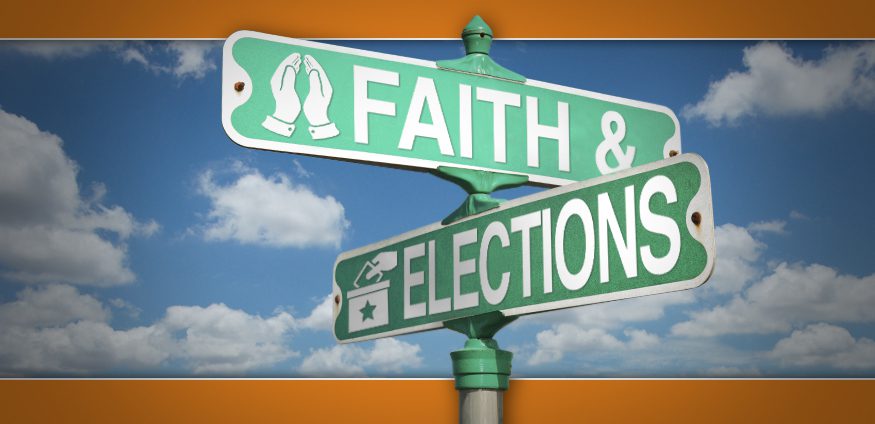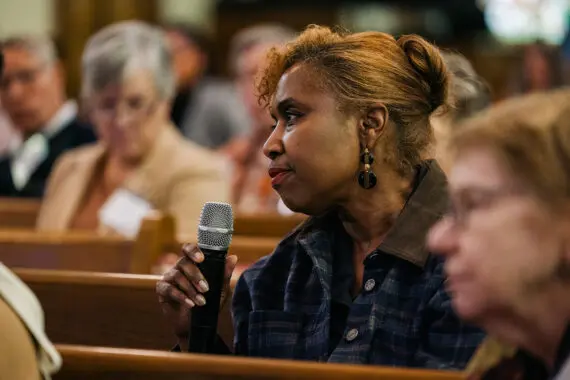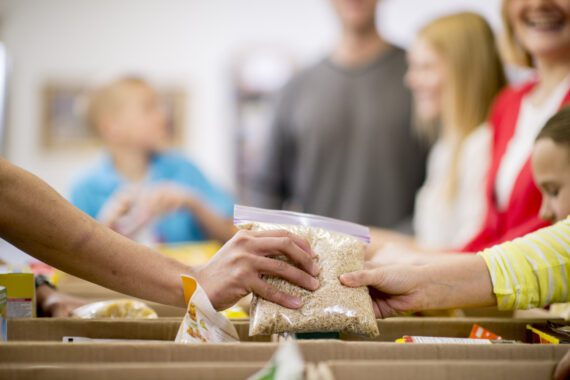Editor’s note: Ahead of the presidential November election, Bread Blog is exploring faith and elections through the lens of different faith perspectives. The blog posts will be written by members of Bread’s church relations staff and friends of Bread for the World.
By Galen Carey
Many political commentators are perplexed, and many American citizens are troubled by the current election season. The major party presidential candidates have reached historic highs in unfavorability ratings. While disagreements on the issues are expected, and indeed helpful in stimulating debate, policy differences have not been the center of attention in this year’s campaigns. Rather, the campaigns have highlighted the character flaws of the opposing candidates. In turn, some candidates’ appeals to fear, anger, and prejudice have tested the character of the voters.
How should faithful Christian citizens respond? Should we throw in the towel? Wring our hands? Engage in self-righteous abstention? There is a better way.
As my co-author Leith Anderson and I write in “Faith in the Voting Booth: Practical Wisdom for Voting Well,” there are many reasons for taking our electoral franchise seriously.
“The Christian’s vote matters not because it decides an election, but because it is an act of faithful stewardship of our citizenship. Voting is an act of Christian witness. Voter participation increases the legitimacy of elections, and thus the mandate of those elected. Voting puts politicians on notice that we care enough to participate. Even if our vote does not decide the outcome of a particular election, it is still needed. If we think others should vote, then we should vote too.” (p. 45)
We need to broaden our concept of voting to include more than simply pulling a lever or tapping a box on a touch screen. Voting begins when we start to notice the issues and challenges facing our community, state, nation, and world. It continues as we tune in to the political discourse and consider the various solutions that are offered. We may even propose solutions of our own.
Voting includes our efforts to engage with candidates, to let them know what issues concern us, and what policies we support. It extends as well to discussions with family, friends, and neighbors, listening to the ideas of others and offering our own. In so doing we help to create a constituency that calls forth from our candidates a more thoughtful platform and, when they are elected, a mandate for action.
Our voting continues as we follow up with our elected leaders, their staff, and appointees, reminding them of their promises and offering them our support for bold and well-conceived plans. Even if our leaders did not receive our support, they still represent us and need to hear from us.
Perhaps most important, we vote when we obey the biblical command to pray for our leaders. They often face what we might call, in Walt Kelly’s memorable phrase, insurmountable opportunities. The work of just governance is hard even in good times, and nearly impossible in times of crisis. We should pray for wisdom, courage, and sensitivity to the needs of those who are living with hunger and poverty. We can pray for our leaders when we are at home, in church, and when we meet with them.
Americans are blessed to live in a democracy where our leaders are accountable to the citizens. While our system is far from perfect, its flaws give us no license to withdraw. Rather, they call us to work toward “a more perfect Union” in which the voices and needs of all — and particularly the most vulnerable among us — are considered.
Galen Carey is vice president for government relations at the National Association of Evangelicals, and co-author of “Faith in the Voting Booth: Practical Wisdom for Voting Well.” He has been a member of Bread for the World since 1980.



